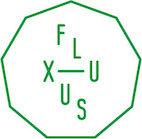

Florilege
Nils Alix-Tabeling and Rebecca Jagoe
30 September - 20 October
PV: Monday 30 Sept 6-9pm
Frieze week opening: Tues 1 Oct - Sat 5 Oct, 12-6pm
Exhibition continues: Fri 11 - Sat 12 Oct, 12-6pm & Fri 18 - Sun 20 Oct, 12-6pm
Event: Friday 11th October , 7pm
Performance by Rebecca Jagoe and Nils Alix-Tabeling
Jupiter Woods is pleased to invite you to Florilege, an exhibition by Nils Alix-Tabeling and Rebecca Jagoe staging their ongoing collaboration and mutual research, which proposes occasions of study and practice for thinking about alternative body knowledges in the realms of medicine and herbalism.
Considering medieval and early modern understandings of science, property, the body and gender relations, the artists explore their influence and relevance in the present, whilst undertaking a historical retracing of queerness, and the interwoven histories of homosexuality and illness. Drawing from a desire of disrupting a singular canon of knowledge and the authoritative, hierarchical systems of scientific rationalism and medical doctrines, Jagoe and Alix-Tabeling have been focusing on lay knowledge, folklore, and plant knowledge as alternative, collective and community-based forms of reclaiming and reconstituting understandings of the body. Reading and writing as being highly codified with gender and sexuality have been important in thinking about individualism, privacy and collectivity, in parallel to embroidery, symbolism and sewing as carriers of meaning.
Integrating text and embroidery, Jagoe investigates the relationship between medicine, knowledge and food practices, looking at how incorporation, eating and ingestion, but also patterns of self-starvation, fasting and purging, relate to knowledge-making and identity formation. Alix-Tabeling draws from the traditional knowledge of plants to connect historical conceptions of the body with possible medical progress in our near future; allowing us to broaden our understanding of living materials and our own physical being as transpecie.
The body is thus scrutinized between assumptions of its mechanical forms and a more holistic vision of its possibilities: of being connected with multiple spheres of life.
The exhibition features works in progress that, assembled by the artists, embody individual and collective processes of making. Aspects of these works have emerged through personal research paths combined with workshops, group activities and conversations: they are carrier of a knowledge that is not fixed, but instead morphs through encounters with the ‘other’.
For more information and to book an appointment please email us at info@jupiterwoods.com
About Florilege
Florilege is a collaborative project between artists Nils Alix-Tabeling, Rebecca Jagoe and curator Carolina Ongaro. Fluctuating between research, collective learning and forms of display, Florilege wishes to activate stages of enquiry into approaches to knowledge-making, through engaging the body and systems of interdependency. Medicine and forms of healing, in particular, are here closely considered and questioned - including their affects on spheres of life spanning the human and non-human.
Looking into medieval history and early modern cultures in the form of manuscripts, the project reads the margins as a trope in order to think about boundaries - those that contain and those that are crossed. In particular, the images at the edges—referenced by art historian Michael Camille as a metaphor for the outlawed—open a reflection on extra-textual space of representation, and the outside as a meaningful and productive territory for ambiguity that oversteps normativity.
Standing both for herbier as well as assemblage of pre-written texts, Florilege will gather writing and ephemera as a collection of disparate forms of knowledge in the form of a book, involving multiple collaborators as well as re-using classical forms of medical folios. The aim is to trouble medicine and Western science as ideologies or systems of collectively validated beliefs—and suggest novel ways of interpreting the relations of the body with the world.
Kindly supported by Arts Council England and Fluxus Art Projects


All photos: © Paul Chapellier